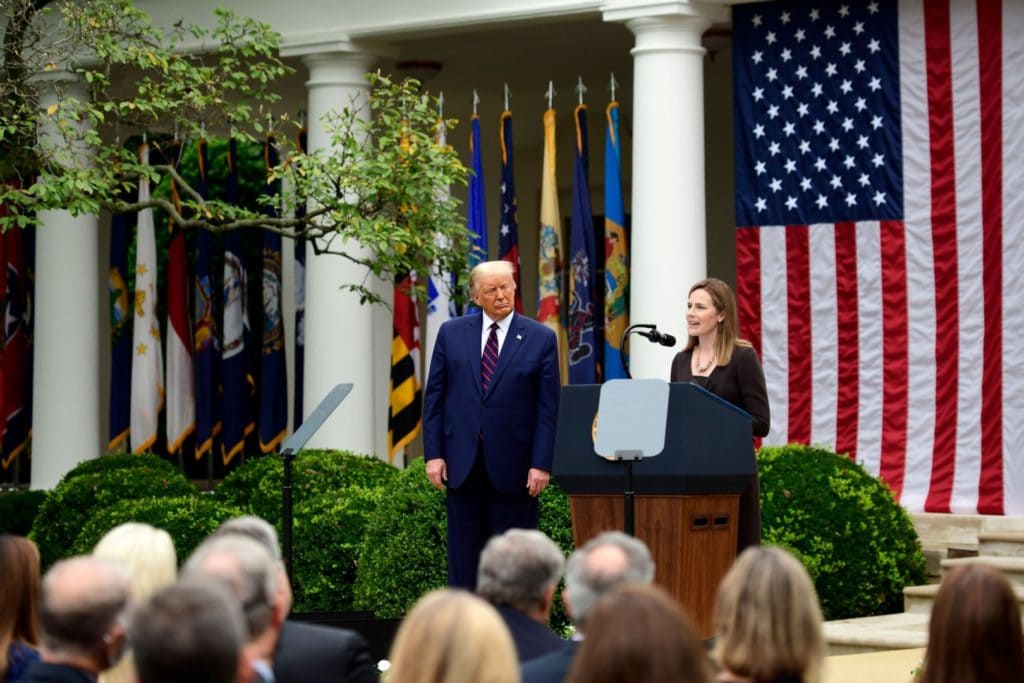
In an analysis of 2019 government data released Monday, policy analyst and blogger Matt Bruenig found that last year, millionaires and billionaires owned 79.2% of all household wealth in the United States despite constituting just under 12% of the population.
Bruenig examined triennial data from the Survey of Consumer Finances, which was released Monday by the U.S. Federal Reserve. https://platform.twitter.com/embed/index.html?creatorScreenName=commondreams&creatorUserId=14296273&dnt=false&embedId=twitter-widget-0&frame=false&hideCard=false&hideThread=false&id=1310614932703019009&lang=en&origin=https%3A%2F%2Fwww.commondreams.org%2Fnews%2F2020%2F09%2F28%2Fanalysis-shows-nearly-80-us-household-wealth-owned-millionaires-and-billionaires&siteScreenName=commondreams&siteUserId=14296273&theme=light&widgetsVersion=219d021%3A1598982042171&width=550px
While the share of wealth owned by households with net worths of $1 million or more decreased slightly between 2016 and 2019, it was still much higher than it was in 1989, the year the modern version of the survey began.
Thirty years ago, millionaires and billionaires owned 60.4% of all household wealth in the U.S.
“If we really want to tackle wealth inequality in this country,” Bruenig wrote, “it is this wealth that we need to spread around.”
Researchers at the People’s Policy Project, where Bruenig is president, have proposed doing so through a social wealth fund.
On a day in which the news cycle has been dominated by the revelations of the extent of President Donald Trump’s tax evasion, others have focused on calling for the nation’s wealthy […]

Amy Coney Barrett, whom President Trump has nominated to replace Ruth Bader Ginsburg on the Supreme Court, was born in 1972, so she can expect to spend several decades shaping both American law and American life. As it happens, a year before Barrett’s birth, Lewis F. Powell, Jr., then a prominent lawyer in Richmond, Virginia, and later a Supreme Court Justice himself, wrote a now famous memorandum to the United States Chamber of Commerce, arguing that businesses needed to take a more aggressive hand in shaping public policy. “The American economic system is under broad attack,” he wrote, from, specifically, the consumer, environmental, and labor movements. He added that “the campus is the single most dynamic source” of that attack. To counter it, Powell suggested that business interests should make a major financial commitment to shaping universities, so that the “bright young men” of tomorrow would hear messages of support for the free-enterprise […]

One of the important lessons Americans learned from Donald Trump’s election in 2016—and one still difficult for some of us to process almost four years later—is just how many of our fellow citizens are predisposed to authoritarianism.
In high school civics we were taught that “American authoritarianism” was an oxymoron. Authoritarianism was a relic of the past. America was a country founded on freedom, steeped in equality and justice, and uniquely immune to it.
We now know that this story is a national fairy tale. As I wrote in Politico nearly a year before Trump’s victory in 2016, the single factor that predicted whether a Republican primary voter supported Trump over his rivals was an inclination to authoritarianism. I published that article based on a national survey taken nearly a year before the presidential election, and it was followed by stories and reports elsewhere on how Trump was stirring up a deep, if often dormant, authoritarian strain in our politics.
In November 2016, voters had a chance to repudiate that strain. Instead, Trump was elected president. […]

A prominent psychiatrist who spent years studying Nazi Germany has called for mental health professionals to speak out about President Trump’s “falsification of reality” ahead of the election, warning that his attacks on the truth echo those of the Nazis.
Dr. Robert Jay Lifton, distinguished professor emeritus at John Jay College and the Graduate Center of the City University of New York and a leading psychohistorian who has written extensively about doctors who aided Nazi war crimes, has long called for mental health experts to defy warnings from the American Psychiatric Association (APA) and speak out about Trump’s mental health. Lifton recently published a book entitled “Losing Reality: On Cults, Cultism, and the Mindset of Political and Religious Zealotry” and was one of the 27 mental health experts featured in “The Dangerous Case of […]










